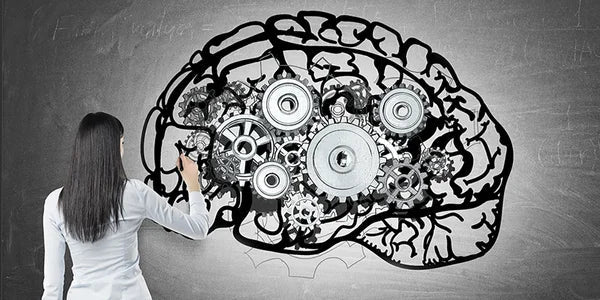Mental health is a crucial aspect of our overall well-being, influencing how we think, feel, and behave. It affects our relationships, our work, and how we navigate through life. In this comprehensive guide, we’ll delve into what mental health means, common mental health issues, the importance of couples communicating about mental health, and effective strategies to improve mental wellness. Understanding these elements is key to fostering healthier relationships and a more supportive community.
What is Mental Health?
Mental health encompasses our emotional, psychological, and social well-being. It is how we handle stress, relate to others, and make choices. Mental health is vital at every stage of life, from childhood to adulthood. Just as we take care of our physical health, attending to our mental health is equally important.
The Importance of Mental Health
Good mental health contributes to happiness and fulfilment, not only for individuals but also for couples and families. It forms the basis for every thought, emotion, and action. When mental health is compromised, it can lead to various issues, including stress, anxiety, depression, and other mental health disorders. Therefore, maintaining mental well-being allows couples to build stronger, more resilient relationships.
Common Mental Health Conditions
There are numerous mental health conditions, but the following are among the most prevalent:
- Anxiety Disorders: Characterised by persistent feelings of anxiety and apprehension, these disorders can include panic disorder, generalized anxiety disorder, and social anxiety disorder.
- Depression: A common but serious mood disorder that affects how a person feels, thinks, and handles daily activities.
- Bipolar Disorder: This condition causes extreme mood swings that include emotional highs (mania or hypomania) and lows (depression).
- Obsessive-Compulsive Disorder (OCD): OCD is marked by obsessive thoughts that lead to compulsive behaviours.
- Post-Traumatic Stress Disorder (PTSD): This may occur after experiencing or witnessing a traumatic event, leading to severe anxiety and flashbacks.
Recognising Signs and Symptoms
Recognising the signs of mental health issues is the first step towards seeking help. Common symptoms include:
- Feeling overwhelmed by emotions like sadness or anger
- Social withdrawal from family, friends, and couples
- Extreme mood changes
- Difficulty sleeping or sleeping too much
- Fatigue or lack of energy
The Role of Couples in Mental Health
Couples play an essential role in each other's mental well-being. Healthy communication and support can make a substantial difference in managing mental health conditions. Here are some ways couples can work together to promote better mental health:
Open Communication
Couples should prioritise open and honest communication about their feelings and mental health. Sharing thoughts and concerns helps alleviate emotional burdens and fosters an environment of mutual support.
Practice Empathy
Understanding and empathising with a partner's struggles can facilitate deeper connections. Being present and listening can go a long way in helping both partners feel valued and understood.
Encourage Professional Help
Sometimes, the best way to support a partner is to encourage them to seek professional help. Therapy and counselling can provide valuable tools for managing mental health issues and should not be viewed as a weakness but rather a strength.
Strategies for Enhancing Mental Health
Improving mental health involves a variety of strategies that couples can undertake together:
Maintain a Healthy Lifestyle
Engaging in regular physical activity, maintaining a balanced diet, and getting adequate sleep can significantly affect mental health. Couples can motivate one another to adopt healthier lifestyles, making it a joint effort.
Establish Healthy Boundaries
Setting healthy boundaries is crucial for maintaining mental health in relationships. Discussing needs and limits can protect both partners’ emotional well-being.
Engage in Relaxation Techniques
Practicing mindfulness, yoga, or meditation can help reduce stress and enhance mental clarity. Couples can practice these techniques together, allowing for shared experiences that strengthen their bond.
Devote Time for Fun
Taking time out for enjoyable activities or hobbies can be a powerful way for couples to reconnect and rejuvenate. Whether it's cooking a meal together, going for walks, or participating in a shared interest, engaging in fun can significantly improve mental health.
Seeking Professional Support
It’s essential to remember that seeking help is a sign of strength. Professional counselling can offer tailored support, develop coping strategies, and provide a safe space for couples to discuss difficult emotions and experiences.
Therapy Options
There are various types of therapy suitable for individuals and couples:
- Cognitive Behavioural Therapy (CBT): This therapy helps individuals understand and change their thought patterns, which can lead to improved emotional responses.
- Couples Therapy: Specialised therapy designed to improve communication and resolve conflicts within relationships.
- Group Therapy: Connecting with others who share similar struggles can foster a sense of community and support.
The Link Between Mental Health and Relationships
Every relationship faces challenges, but mental health can add complexity to these issues. Maintaining open conversations can improve relationship satisfaction and enhance coping mechanisms when faced with mental health struggles.
How to Strengthen Your Relationship
By prioritising mental health, couples will likely experience healthier relationships. Here are a few tips to deepen the connection:
- Schedule regular check-ins to discuss feelings and any issues that may arise.
- Celebrate each other’s successes, no matter how small.
- Practice gratitude by acknowledging the positive traits in each other.
Building a Supportive Environment
A supportive environment is crucial for mental wellness. Couples should strive to create a space where each partner feels safe to express their feelings without judgment. Additionally, establishing a routine that prioritises mental well-being can lead to lasting positive outcomes.
Encouraging Open Discussions with Family and Friends
Encouraging open discussions about mental health with family and friends can break the stigma surrounding these issues. As couples reach out for support, they help foster a broader understanding of mental health in their social circles.
Your Journey Towards Better Mental Health
Understanding mental health is the first step in managing it effectively. Couples have an incredible influence on each other's mental well-being and can foster an environment of empathy, support, and growth. As you navigate your journey through mental health, remember that seeking help and committing to ongoing discussions and strategies are vital components to achieving balance. Investing time and effort in understanding mental health not only benefits individuals but strengthens the fabric of couples and families alike. The journey towards better mental health is not just about overcoming challenges; it's about thriving as you face them together.
Further Information & Help
We hope you have found this blog useful. However, if you would like some help and guidance you can contact us here or book an initial consultation here.





